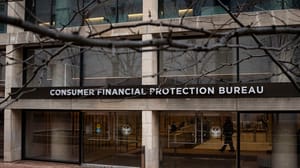Saft on Wealth: When "Dark Markets" Are Unfair to Mutual Fund InvestorsSaft on Wealth: When "Dark Markets" Are Unfair to Mutual Fund Investors
Fund management companies have a motivation to favor some of their funds over others.
October 19, 2016

(James Saft is a Reuters columnist. The opinions expressed arehis own)
By James Saft
NEW YORK, Oct 19 (Reuters) - Funds conducting off-exchangetrades within their own fund family are likely favoring their"stars" at the expense of the also rans.
As usual, unsuspecting investors are left paying the bill.
A Bank for International Settlements paper, published inAugust, shows evidence that this form of "dark market" tradingis almost certainly not always being done in a way fair to allinvestors in a given fund family.
For many years, funds within the same corporate family offunds have been allowed to "cross-trade", a process where onefund which wants to sell a security then exchanges it withanother which wants to buy, never actually using the open publicmarkets.
While 90 percent of these trades pay no commission, and aretherefore theoretically better for clients, the practice has acheckered history.
Before new regulations were put into place in 2004, crosstrades were, on average, being done at significantly lessadvantageous prices than could be had on public markets. That'simproved, but still at issue is the extent to which fundfamilies use cross-trading as a means to favor their bestperforming or most lucrative funds.
"We offer support to the hypothesis that star fundsbenefited from cross-trading at the expense of junk funds,"according to the working paper for the Bank for InternationalSettlements, which acts as a central bank to central banks.
( https://papers.ssrn.com/sol3/papers.cfm?abstract_id=2831690 )
"This strategy had relevant implications for fund ranking,fund selection, and fund manager evaluation. Our results suggestthat fund alphas potentially misrepresent the real ability offund managers to create value for their investors."
The study used a sample of trades done in this way by U.S.asset managers between 2004-2010.
Fund management companies have a motivation to favor some oftheir funds over others, either because they charge higher feesor are outperformers which will attract the lion's share ofinflows.
"Tying cross-trade level data to fund performance, we findthat cross-trading potentially boosted the risk-adjustedperformance of star funds by around 1.7 (percentage points) peryear on average (causing an equivalent loss for the leastimportant funds). This result casts doubt on the fraction ofperformance delivered by mutual funds that is really due toskill," according to authors Alexander Eisele of University ofLugano, Tamara Nefedova of Université Paris-Dauphine andGianpaolo Parise of the BIS.
Lie Down With Agents, Wake Up With Issues
That 1.7 percentage point per year "reallocation" of returnsfrom one fund to another is quite significant, given that it isitself far higher than the typical equity management fee, and achunky percentage of an overall annual return in an averageyear.
This is a classic example of the kind of "agency issue"endemic to fund management in which investors hire managers astheir agents to act in their best interests and then have onlyvery imperfect means of making sure they are not self-dealing.
There are plenty of caveats here, both because theidentities of the funds cannot be known with complete certaintyand because the effects appear to have diminished afterregulatory reform.
It is also worth noting that cross-trading went from 6.0percent of total trading activity before the 2004 reforms tobelow 1.0 percent today.
The study also found that cross-trades varied from marketbenchmark prices by more in stocks which were illiquid andhighly volatile which may be expected.
More concerning was that cross-trades were further offpublic market levels as well when the asset manager had weakgovernance, larger internal markets, and strong incentives forreallocating.
These cross trades were also more likely to be struck ateither the highest or lowest price of the day, suggesting thatthey were sometimes being priced after the fact in order to padone fund's performance at the expense of another.
This report is reminiscent of a May study which found ithighly likely that fund managers who run mutual funds and hedgefunds at the same time, or side-by-side, were similarly shiftingperformance towards hedge funds, which pay them better.
Mutual funds with at least one side-by-side managerunderperform those without any by 9.6 basis points per month, or1.15 percentage points a year, using a standard measure ofoutperformance, or alpha, according to the study.
( https://papers.ssrn.com/sol3/papers.cfm?abstract_id=2774273 )
One clear way to help the situation would be to require moregranular disclosure of trading allocations of all sorts, thebetter to allow regulators and investors protect theirinterests.
Until that happens, it may make sense to be wary of fundfamilies, and especially their funds which are underperforming.
(James Saft)





